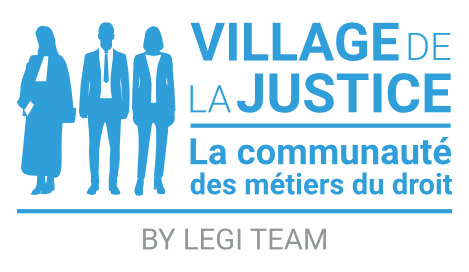Forum : Préparation d'examens, concours, travaux d'étudiants...
Sujet : NY bar pour un avocat français
NY bar pour un avocat français
- "Membre"
- 2 messages
- Localisation: Etranger
- Profession: Documentaliste, KM
Je suis avocat en France et je souhaitais passer le New York Bar exam. Je n'arrive pas à trouver avec précisions les textes le permettant. Est-ce que quelqu'un a des informations ?
Merci par avance.
- "Vétéran"
- 945 messages
- Localisation: Etranger
- Profession: Métiers des RH
- "Membre"
- 2 messages
- Localisation: Etranger
- Profession: Documentaliste, KM
On m'a dit qu'en ayant déjà passé le barreau en France, on pouvait passer le NY Bar exam sans avoir à étudier (LLM, JD, ...) de nouveau... et c'est la que j'ai besoin de confirmation !!
- "Membre actif"
- 124 messages
- Localisation: Etranger
- Profession: Avocat
- "Membre actif"
- 20 messages
- Localisation: Chicago
- Profession: Avocat
Véronique
FOREIGN LEGAL EDUCATION
Introduction. Section 520.6 of the Rules of the Court of Appeals for the Admission of Attorneys and Counselors at Law [22 NYCRR 520.6] contains the eligibility requirements for applicants who wish to qualify for the New York State bar examination based on the study of law in a foreign country. Compliance with the requirements of the Rules of the Court of Appeals must be proved to the satisfaction of the Board before an applicant may be permitted to sit for the bar examination. Therefore, applicants are strongly urged to carefully review Sections 520.6 and 520.3 of the Rules of the Court Appeals before making application to sit for the New York State bar examination.
If after reviewing Sections 520.3 and 520.6 of the Rules of the Court of Appeals you believe that you meet the eligibility requirements to qualify for the bar examination you may file an application during the appropriate filing period (consult the Application Materials). You should attach to your application satisfactory proof of compliance with Section 520.6 as discussed below in the section entitled Proof Required for Compliance with 520.6.
Advance Evaluation of Eligibility. Applicants are not required to obtain an evaluation of their eligibility in advance of their application to the examination. However, if an applicant wishes to request an evaluation of their eligibility in advance of making application to the sit for the examination the applicant shall complete a Request for Evaluation of Foreign Academic Credentials Form, a copy of which may be downloaded from this website, and mail it to the Board offices together with the documentation described below under the section entitled Documentary Proof Required for Compliance with 520.6. Requests for Evaluation shall be made well in advance of the examination for which the applicant intends to apply, preferably at least six months in advance of the application filing period. Due to the volume of applications that the Board must process for each administration of the exam, the Board is unable to issue evaluations after the application filing period opens. At that time it will be necessary for you to attach your credentials to your application. After your application is processed and our staff has had an opportunity to review your supporting documentation you will be contacted should there be a problem with your eligibility.
Evaluations will not be conducted until the Board is in receipt of all required documentation. When the Board is satisfied that all necessary documentation has been received, the Board will commence the evaluation and provide you with a written decision in due course. We kindly ask that you allow at least eight to ten weeks from the date of the Board’s receipt of all of the necessary documentation for a decision to be made in your case. Please also note that all transcripts and proofs submitted to the Board become the possession of the Board and will not be returned to the applicant.
Synopsis of the Requirements of Section 520.6(b)(1). Section 520.6(b)(1) of the Rules of the Court of Appeals requires an applicant to provide satisfactory proof of the following:
(1) that the applicant has fulfilled the educational requirements for admission to the practice of law in a foreign country other than the United States;
(2) that the applicant has successfully completed a period of law study in a law school or schools, that is at least substantially equivalent in duration to that required under subdivisions (d) and (e) of section 520.6;
(3) that throughout the period of the applicant’s study, the law school or schools attended was each recognized by the competent accrediting agency of the government of such other country, or a political subdivision thereof, as qualified and approved;
(4) that the jurisprudence of such foreign country is based upon the principles of the English Common Law; and
(5) that the "program and course of law study" successfully completed by the applicant were the substantial equivalent of the legal education provided by an approved law school in the United States.
Curing a durational or substantive deficiency under subdivision (b)(1)(ii). Subdivision (b)(1)(ii) of part 520.6 permits certain applicants to cure either a durational or substantive deficiency by successfully completing further study at an approved law school in the United States. Specifically, if an applicant cannot satisfy the durational equivalency requirements of section 520.6(b)(1) but has at least two years of substantively equivalent education, or if the applicant cannot satisfy the substantive equivalency requirements of 520.6(b)(1)(i), the applicant may still qualify to sit for the bar examination by showing "that the applicant has successfully completed a full-time or part-time program consisting of a minimum of 20 semester hours of credit, or the equivalent, in professional law subjects, which includes basic courses in American law, in an approved law school in the United States." Prospective applicants should note that subdivision (b)(1)(ii) does not permit use of the "program of study at a U.S. law school" to cure both durational and substantive deficiencies.
- "Membre"
- 6 messages
- Localisation: 75
- Profession: Avocat
Lisou a écrit :J'ai bien lu ces discussions mais ça ne répond pas exactement à ma question.
On m'a dit qu'en ayant déjà passé le barreau en France, on pouvait passer le NY Bar exam sans avoir à étudier (LLM, JD, ...) de nouveau... et c'est la que j'ai besoin de confirmation !!
Je ne crois pas, vu ce qui suit.
Pour ma part je vais essayer de le passer en Fevrier prochain et il fallait bien si je ne me trompe pas justifier d'un programme d'etude US ou au moins en pays de Common Law.
- "Membre"
- 7 messages
- Localisation: Etranger
- Profession: Documentaliste, KM
- "Membre actif"
- 61 messages
- Localisation: 75
- Profession: Documentaliste, KM
Struddy a écrit :C'est exact. NY et trois autres etats je crois permettent de n'etudier "qu'un" an au niveau LLM, les autres trois.
Pourquoi ne pas demander plutôt dans un forum américain ?
Au total il y a 19 utilisateurs en ligne :: 0 enregistré, 0 invisible et 19 invités (basées sur les utilisateurs actifs des 5 dernières minutes).
Le record du nombre d’utilisateurs en ligne est de 1718, le Jeu 26 Sep 2024 12:13

Bienvenue sur le Village de la Justice.
Le 1er site de la communauté du droit: Avocats, juristes, fiscalistes, notaires, commissaires de Justice, magistrats, RH, paralegals, RH, étudiants... y trouvent services, informations, contacts et peuvent échanger et recruter. *
Aujourd'hui: 156 460 membres, 28051 articles, 127 286 messages sur les forums, 2 730 annonces d'emploi et stage... et 1 600 000 visites du site par mois en moyenne. *
FOCUS SUR...
• Nouveau : Guide synthétique des outils IA pour les avocats.
• [Dossier] Le mécanisme de la concurrence saine au sein des équipes.
LES HABITANTS
Membres

Nouvelles parutions

Robert Badinter - L’œuvre d’un juste
« Un jour, je vous parlerai de la Justice...»

La Semaine Juridique - Édition Générale
Accédez à votre actualité juridique chaque semaine sous la plume d’auteurs de renom !

Sélection Liberalis du week-end : Le nouveau Quadrilatère, Centre d’Art de Beauvais.

[Parution] Sambre, l’autre rive.

Les coups de coeur des libraires juridiques (épisode 3).

A voir et à Écouter... sur le Village de la justice:























